3 Ways Fasting Improves Autoimmune Diseases
Autoimmune diseases are increasingly common. Over 23.5 million Americans are affected by one or several of the over 100 autoimmune conditions. When your immune system turns against and mistakenly attacks your body, you develop an autoimmune disease, which can then lead to various symptoms and further health problems.
The good news is that through appropriate dietary and lifestyle strategies, you can reduce your risk and improve your autoimmune conditions. Fasting is one of these powerful strategies. Fasting is an ancient healing method where you are abstaining from food for a period of time. It has many health benefits, including reducing inflammation and improving your immune system.
In this article, you will learn what autoimmune diseases are and the major factors that are involved in their development and progression. I will discuss how fasting impacts your immune system and share with you 3 strategies to help you begin fasting. You will understand how to use these methods and how often to practice fasting to support your immune system and improve your autoimmune conditions.
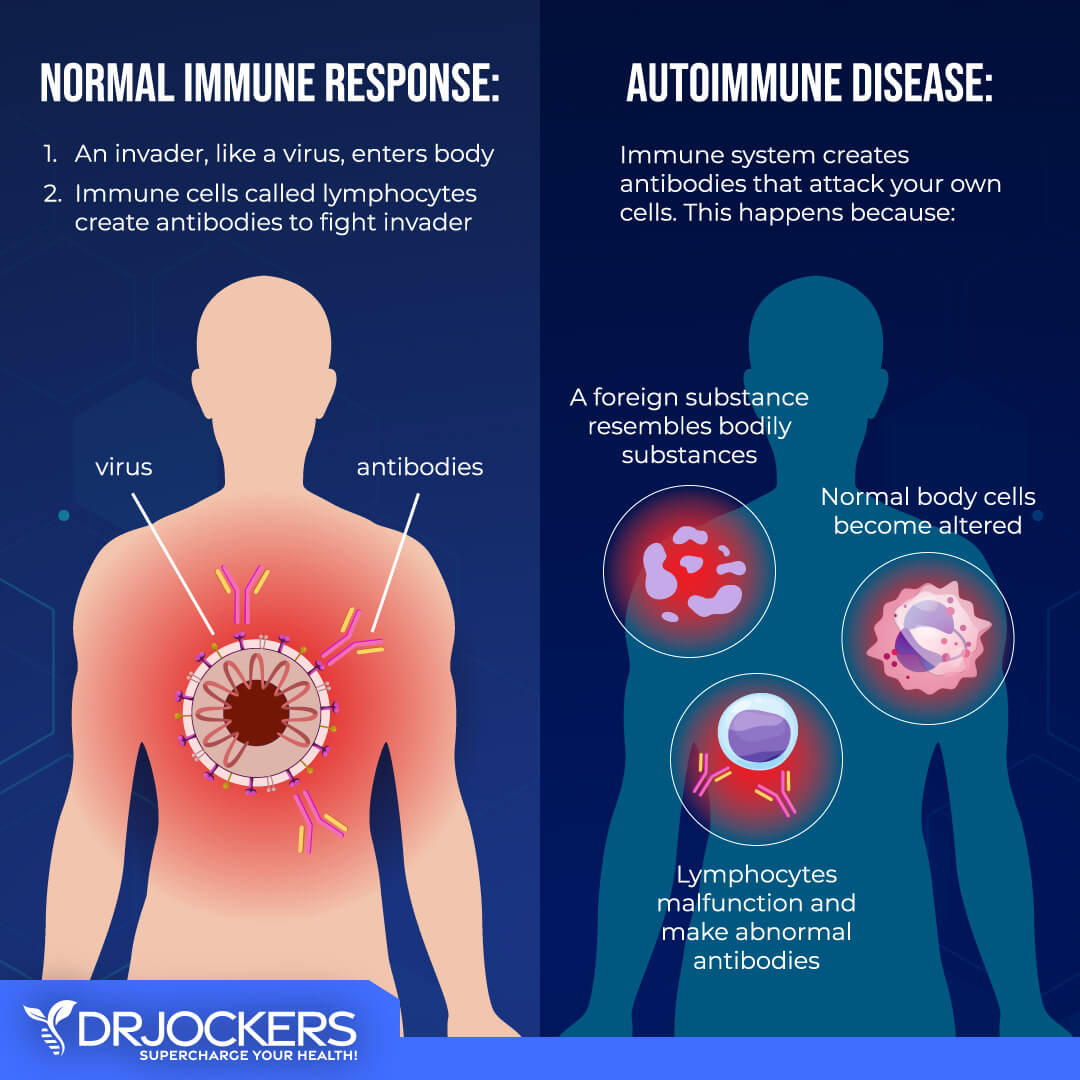
The Fasting Transformation Book
If you want to improve your metabolic health and burn fat, improve your brain and overall energy levels…intermittent and extended fasting are incredibly powerful strategies.
That is why I want to introduce you to my best-selling book, The Fasting Transformation. It goes into the most recent scientific research and strategies for implementing intermittent and extended fasting into your life.
This book is the best book on fasting the world has ever seen and I have read them all! It is now, my great honor to present this to you and I am deeply appreciative of your support!
What Are Autoimmune Diseases
Autoimmune disease refers to a group of conditions in which your immune system turns against and mistakenly attacks your body. In a healthy body, your immune system protects you from harmful invaders, such as bacteria, viruses, fungi, and toxins, all while protecting your body.
It can differentiate between your cells and foreign or harmful cells. If you have an autoimmune disease, your body mistakes your cells for foreign invaders and releases an army of autoantibodies to attack them (1, 2).
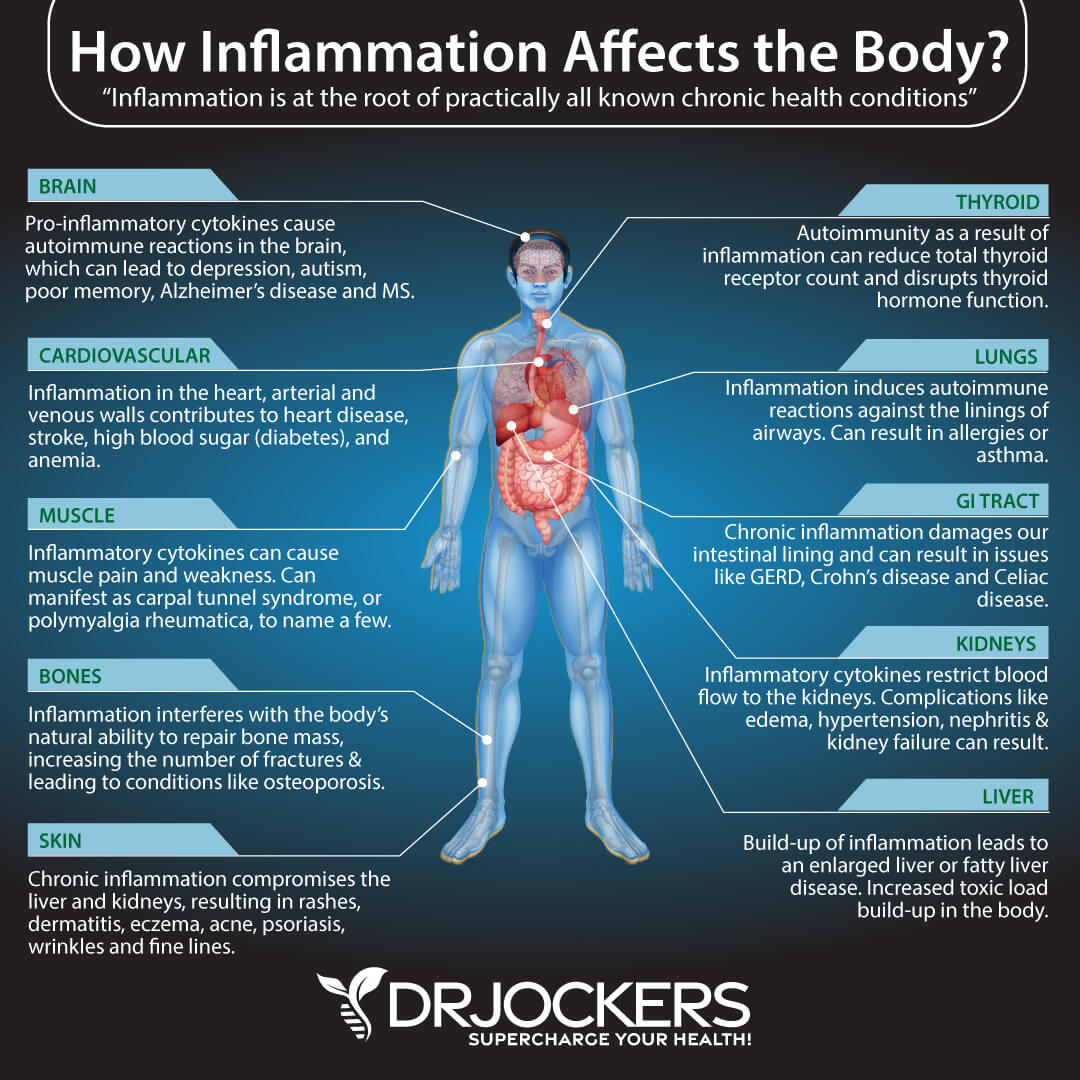
Autoimmune Diseases
There are over 100 autoimmune diseases. Some, such as type 1 diabetes, only target one organ or one part of the body, while other conditions, such as lupus, affect larger areas or your entire body (4).
Some of the most common autoimmune conditions include:
- Rheumatoid arthritis (RA): RA impacts your joint health. Its symptoms include pain, soreness, stiffness, warmth, and redness.
- Celiac Disease: Celiac disease is closely connected to gluten consumption. If people with Celiac disease consume anything with gluten, they experience an autoimmune reaction, inflammation in their gastrointestinal tract, and an array of symptoms including digestion issues, fatigue, and skin reactions. If you have Celiac disease, you must avoid any traces of gluten, including potential cross-contamination.
- Inflammatory Bowel Disease (IBD): IBD, including ulcerative colitis and Crohn’s disease, affects your gastrointestinal tract. Ulcerative colitis affects your large intestine and rectum, while Crohn’s disease may affect the entire GI tract.
- Autoimmune Thyroid Conditions: Hashimoto’s thyroiditis causes slow thyroid hormone production, whereas Graves’ disease results in too much thyroid hormone. Symptoms of Hashimoto’s disease may include weight gain, fatigue, cold, and hair loss, whereas Graves’ disease causes weight loss, heat intolerance, anxiety, and fast heartbeat.
- Lupus: Lupus affects multiple organs in your body, including your skin, joints, brain, heart, and kidneys. It’s characterized by fatigue, pain, and rashes among other symptoms.
- Psoriasis and Psoriatic Arthritis: Psoriasis affects your skin and causes your skin cells to multiply quicker than normal resulting in dry, red skin patches and scales. Over a quarter of people with psoriasis also develop related arthritis symptoms as well.
- Multiple Sclerosis (MS): MS causes damage to the protective coating around your nerve cells, called myelin sheet. Its symptoms may include weakness, numbness, balance problems, and mobility issues.
- Type 1 Diabetes: Type 1 diabetes affects your pancreas destroying insulin-producing cells and interfering with blood sugar regulation. Symptoms include thirst, frequent urination, fatigue, blurry vision, and hunger.
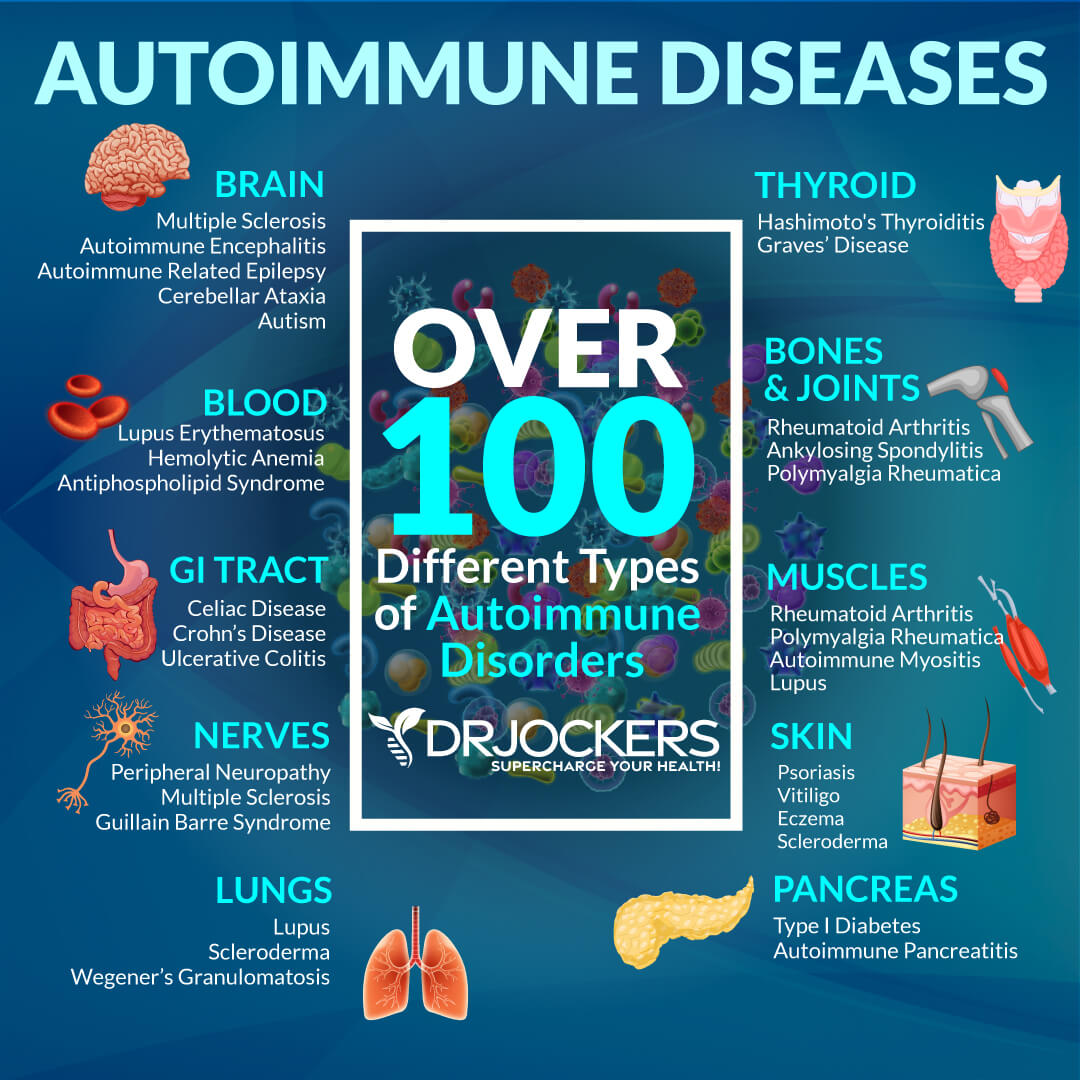
Major Factors Involved in Autoimmune Diseases
Autoimmune diseases are complex, however, there are some major factors involved in their development and progression. Let’s look at the main factors that may trigger your symptoms or worsen your autoimmune conditions.
Gut Dysbiosis & Infections
Did you know that your gut houses 70 to 80 percent of your immune system? It is your gateway to health. Eating an inflammatory diet low in nutrients, toxic exposure, and stress can compromise your gut flora balance. Gut microbiome imbalance and gut dysbiosis can lead to inflammation, a compromised immune system, and leaky gut syndrome (5, 6).
Leaky gut syndrome is one of the potential precursors and root causes of autoimmunity. If you have leaky gut syndrome, the normally tight junctions on your gut lining become too loose and allow microbes, toxins, and undigested, larger food particles to pass into your bloodstream. Unfortunately, your body may recognize these particles as harmful, foreign invaders, and in response may trigger an inflammatory and autoimmune response (7).
Besides gut dysbiosis from diet and lifestyle, infections may also trigger autoimmunity. There are various infections, including the Epstein Barr Virus (EBV), better known as the virus responsible for mono, E. coli, and Herpes Simplex 1 and 2 that have been linked to autoimmune conditions. These infections can lie dormant inside your body for years or even decades until they get triggered by a physical or emotional stressor creating an autoimmune response (8, 9).
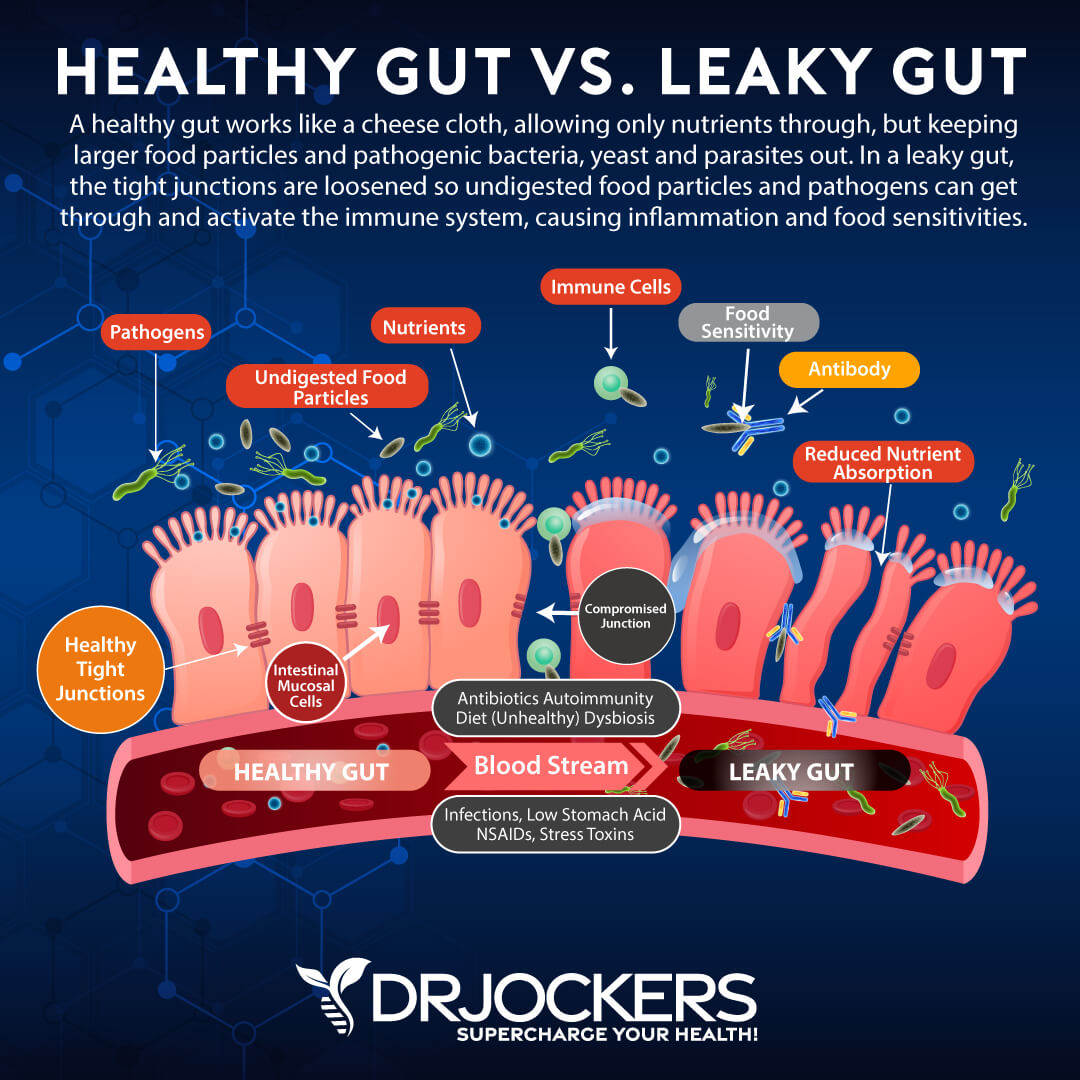
Food Sensitivities and Autoimmune Diseases
Unlike food allergies, food sensitivities don’t create an immediate reaction in your body. However, over time, if you are regularly consuming foods that you are sensitive to, it creates inflammation, gut dysbiosis, and an array of symptoms, including digestion problems, skin issues, headaches, and fatigue.
Food sensitivities may also trigger an autoimmune response and autoimmune symptoms. Common food sensitivities that may trigger autoimmunity include gluten, dairy, sugar, eggs, legumes, nuts, seeds, and nightshades (10, 11, 12).
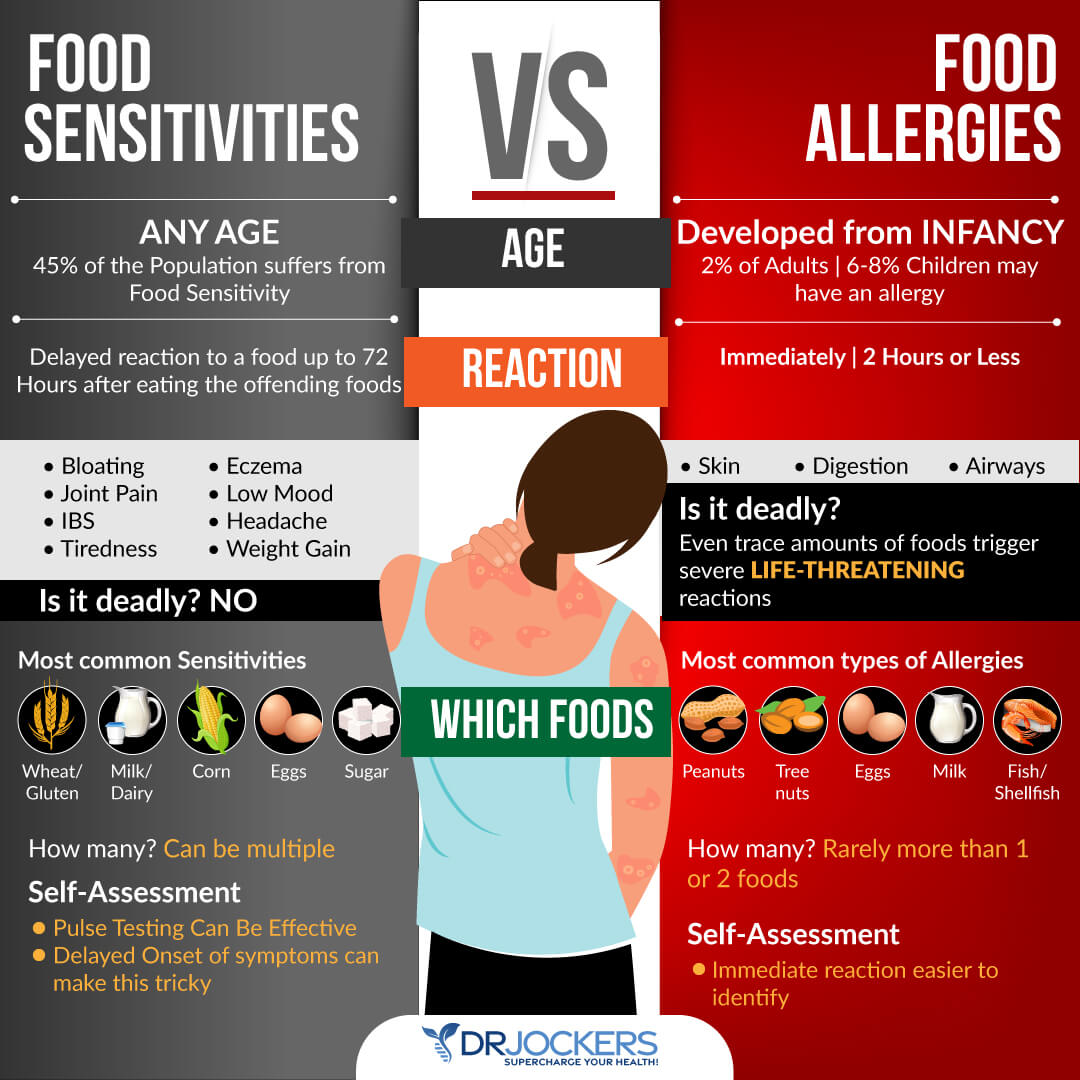
Toxin Exposure and Autoimmune Diseases
Unfortunately, toxins are everywhere around us from the air you breathe to non-organic food, conventional body-care and cleaning products, municipal tap water, plastic, cigarette smoke, and so on. An average adult’s body is overburdened by over 500 different toxins.
Too much toxin exposure leads to a toxic burden in your body, which can overwhelm your immune system and lead to an autoimmune response. Toxic molds or mycotoxins, heavy metals, such as mercury in amalgam dental filling, and pesticides in non-organic food are just some of the culprits I often see in my patients with autoimmune conditions (13, 14).
Chronic Stress and Autoimmune Diseases
Chronic stress can be described as chronic physical, psychological, emotional, or spiritual tension that creates a constant state of fight-or-flight response and elevated cortisol and adrenaline levels. Chronic stress also increases chronic inflammation in your body which may lead to gut imbalance and an autoimmune response.
If you are experiencing chronic stress, you may be more likely to try to cope with it through unhealthy dietary or lifestyle choices, such as sugary, inflammatory foods, lack of exercise, or smoking, which may further increase the risk of inflammation, gut dysbiosis, autoimmunity, and related symptoms (15).
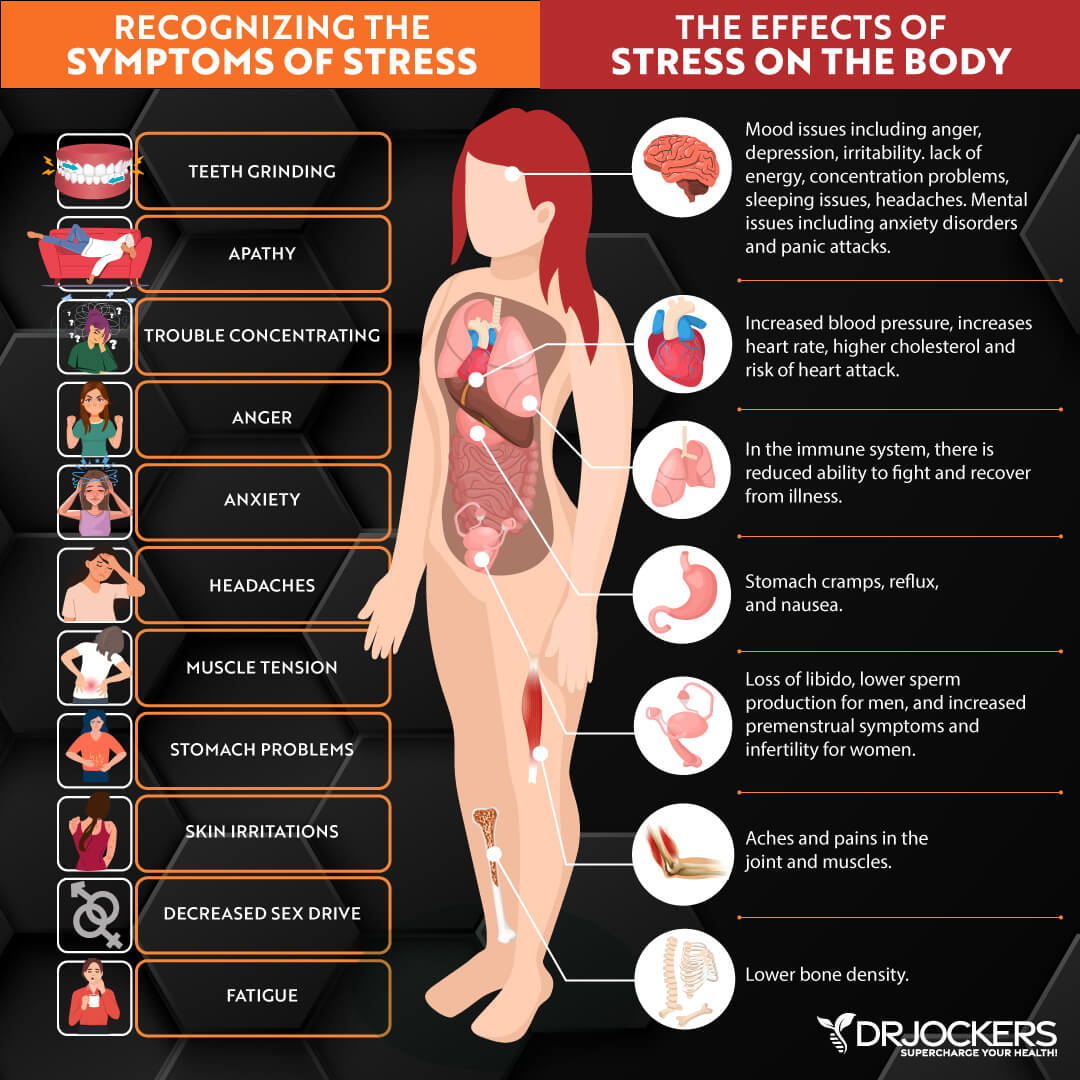
Nutrient Deficiencies
Eating an inflammatory diet low in nutrient-dense greens, vegetables, fruits, healthy fats, and clean protein can result in nutrient deficiencies. The problem is that nutrient deficiency can increase your risk of inflammation and autoimmune disease.
Several key nutrient deficiencies often play a role in autoimmunity in my patients, including magnesium, vitamin D, zinc, omega-3 fatty acids, B vitamins, glutathione, and selenium (15, 16, 17, 18).
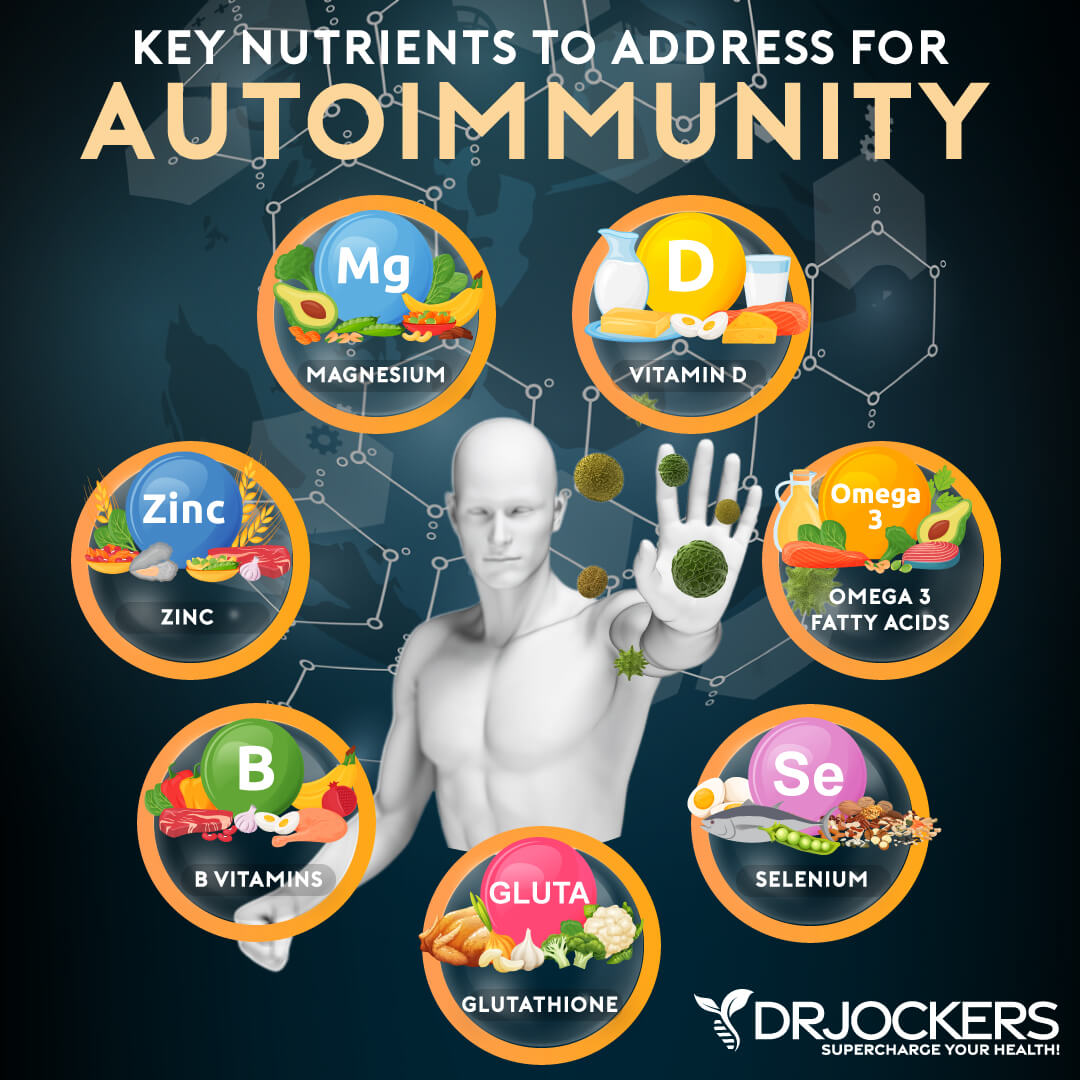
How Fasting Impacts the Immune System
Fasting is the practice of abstaining from food and consuming only water for a period of time. Fasting has several health benefits, including a powerful impact on your immune system.
Let’s see how fasting may benefit your immune system and how it may improve your autoimmune condition.
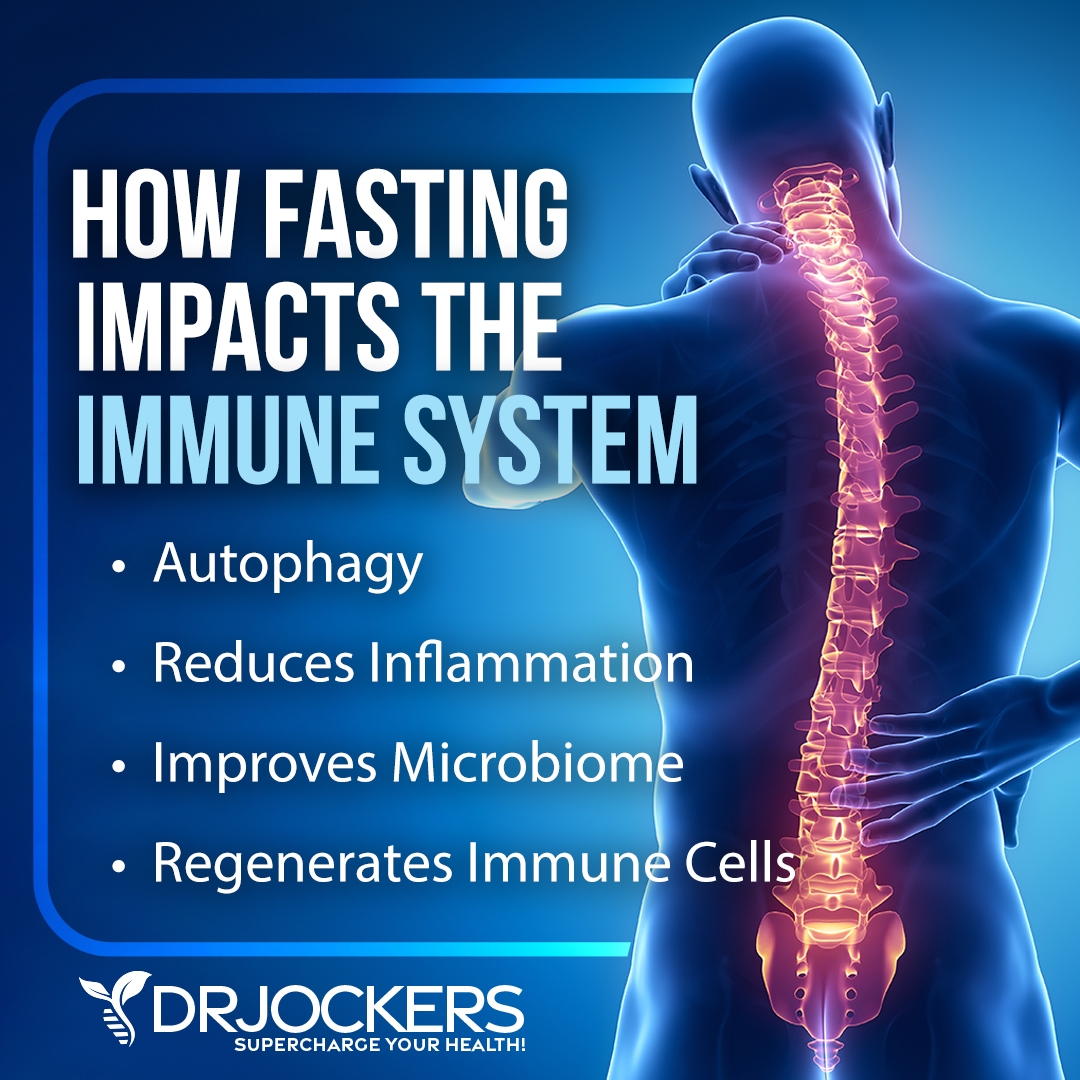
Fasting and Autophagy
Autophagy is a process that allows your body to break down old, damaged, and weak cells to recycle them for energy. This stimulates and creates room for the production of new, healthy, and more efficient cells.
Autophagy assists your immune system in controlling viral and intracellular parasite replication and lowers inflammation as a result. Research has shown that food restriction through fasting is a fantastic way to achieve autophagy in your body.
One study has found that the upregulation of autophagy through fasting may prevent, delay, or ameliorate the development of neurodegenerative diseases of the central nervous system (CNS), such as MS (20).
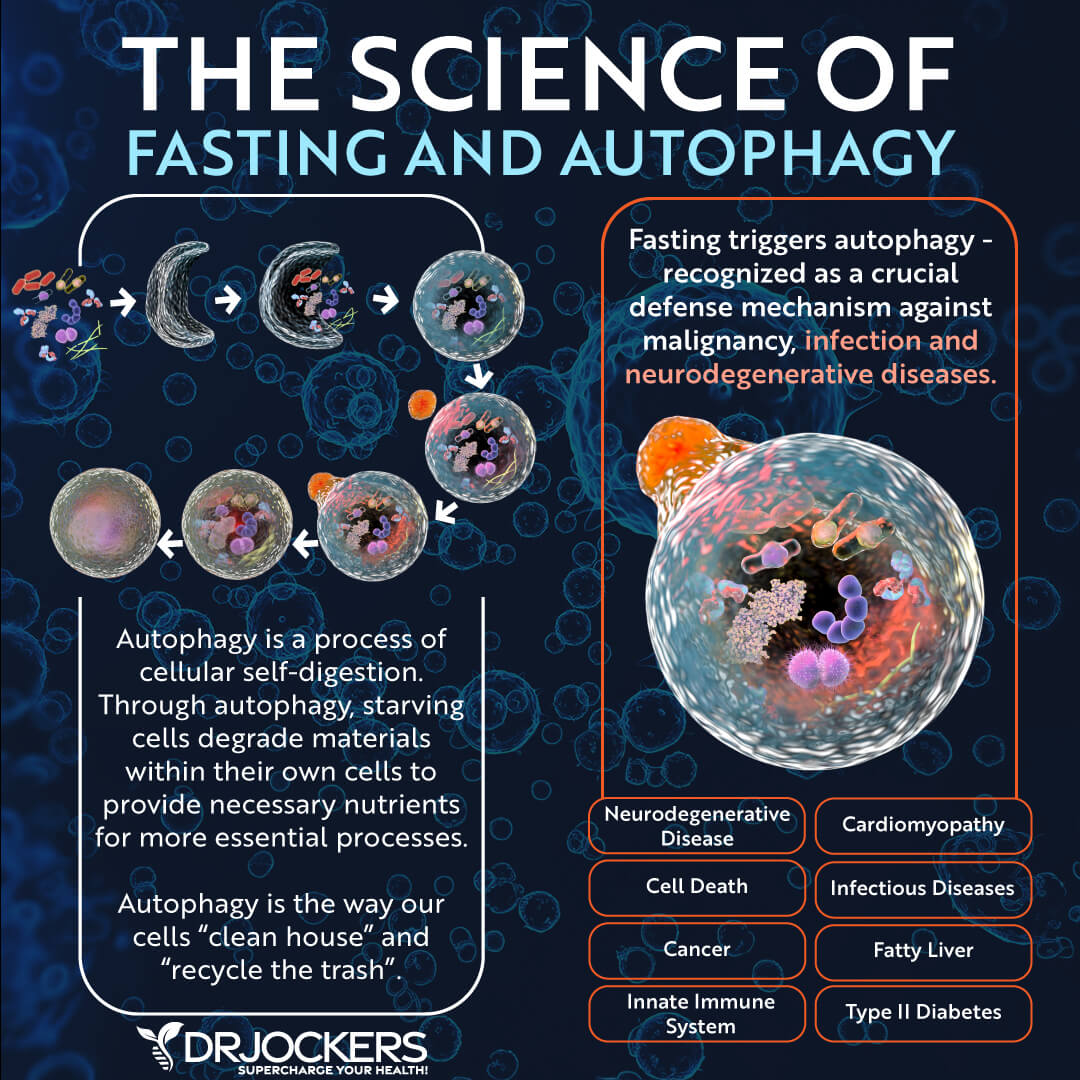
Fasting and the Microbiome
Your gut microbiome balance plays a critical role in determining the strength of your immune system. Research has shown that fasting is a powerful strategy with a positive impact on your gut.
For example, one study has shown that fasting helps your body to favor the growth of beneficial bacteria over harmful bacteria species, such as salmonella. Another study has shown that intermittent fasting can increase gut microbiome diversity, enhance antioxidative microbial metabolic pathways, and strengthen the immune system of those with MS (21, 22).
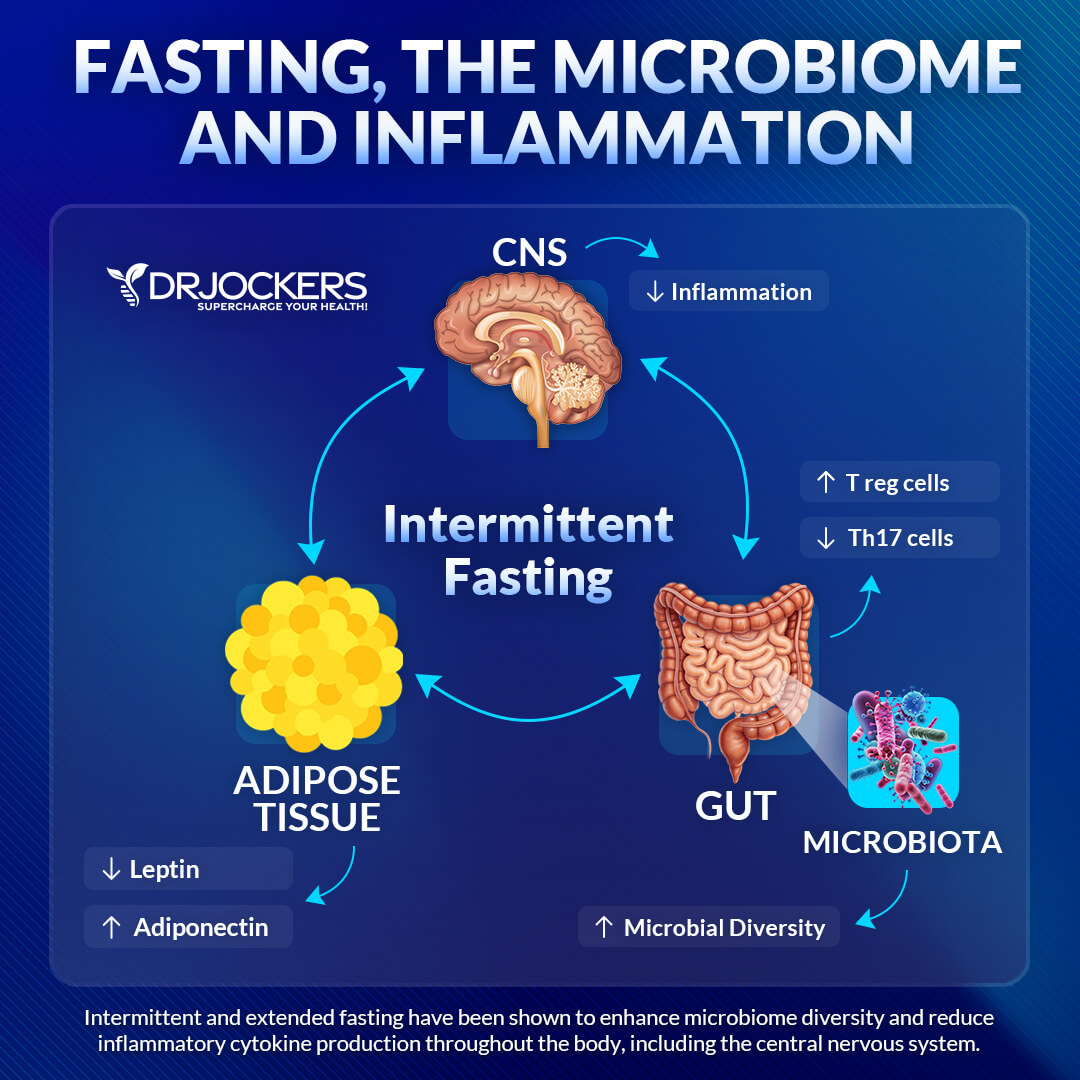
Fasting and Immune Cell Regeneration
Fasting may also improve immune cell regulation in your body. According to a recent research study, prolonged fasting that lasts anywhere from 48 to 120 hours can improve your immune system. It may also help to activate certain pathways that enhance your resistance to stress and toxins.
Fasting may also help to activate immune cell regeneration allowing your body to recycle old and damaged immune cells and generate healthy blood and a healthy immune system. This is not only good news for those with autoimmune conditions but may be beneficial for preventing tumor growth, supporting cancer treatment, and experiencing anti-aging benefits (23).
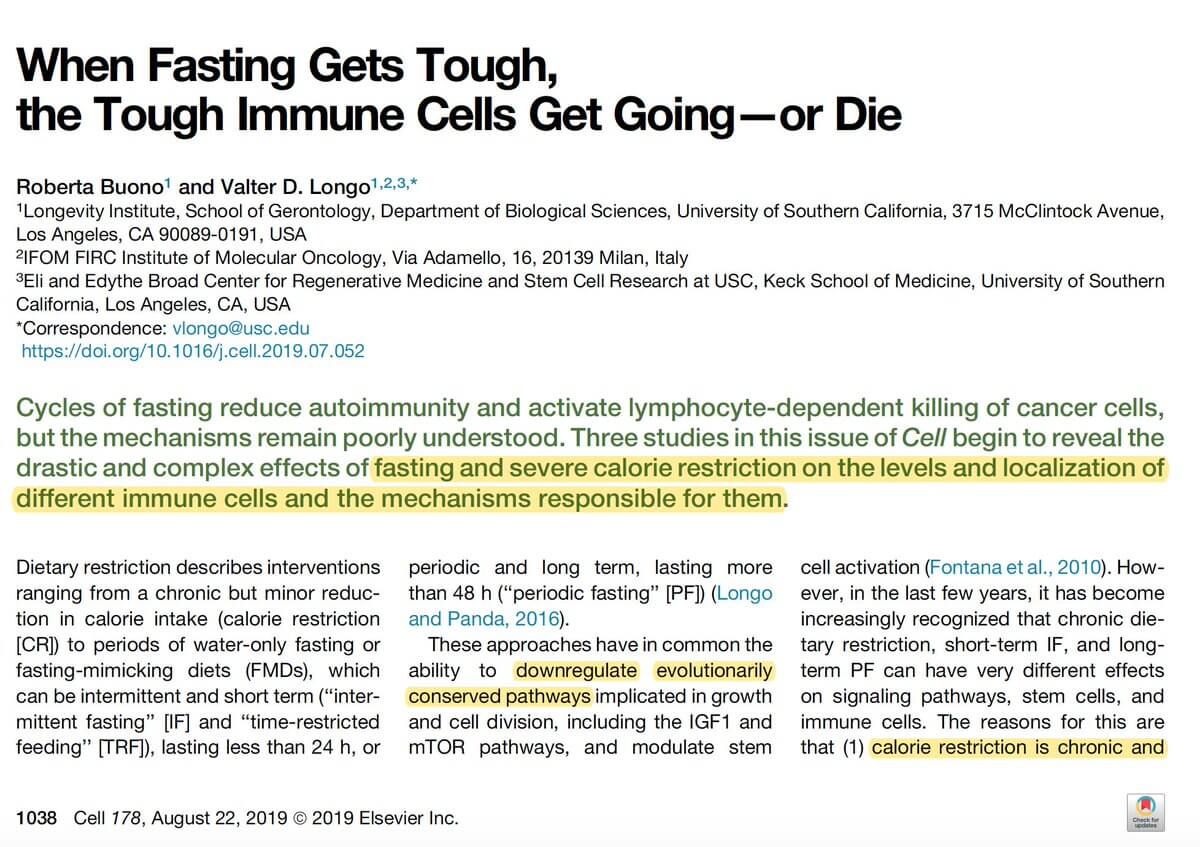
Ways to Begin Fasting
Learning about the immune system-supporting health benefits of fasting, you are probably excited to embark on a fasting journey. Read on to learn how to begin fasting to improve your autoimmune condition.
Start with Intermittent Fasting
To experience the immune-supporting benefits of fasting, I recommend that you start with intermittent fasting. Intermittent fasting is a strategy that involves fasting for a certain period of a day.
There are different types of intermittent fasting strategies you can choose from depending on your fasting experience, health, lifestyle, and preference. Some types may be practiced every day of the week while other types of fasting are best employed only several times a week.
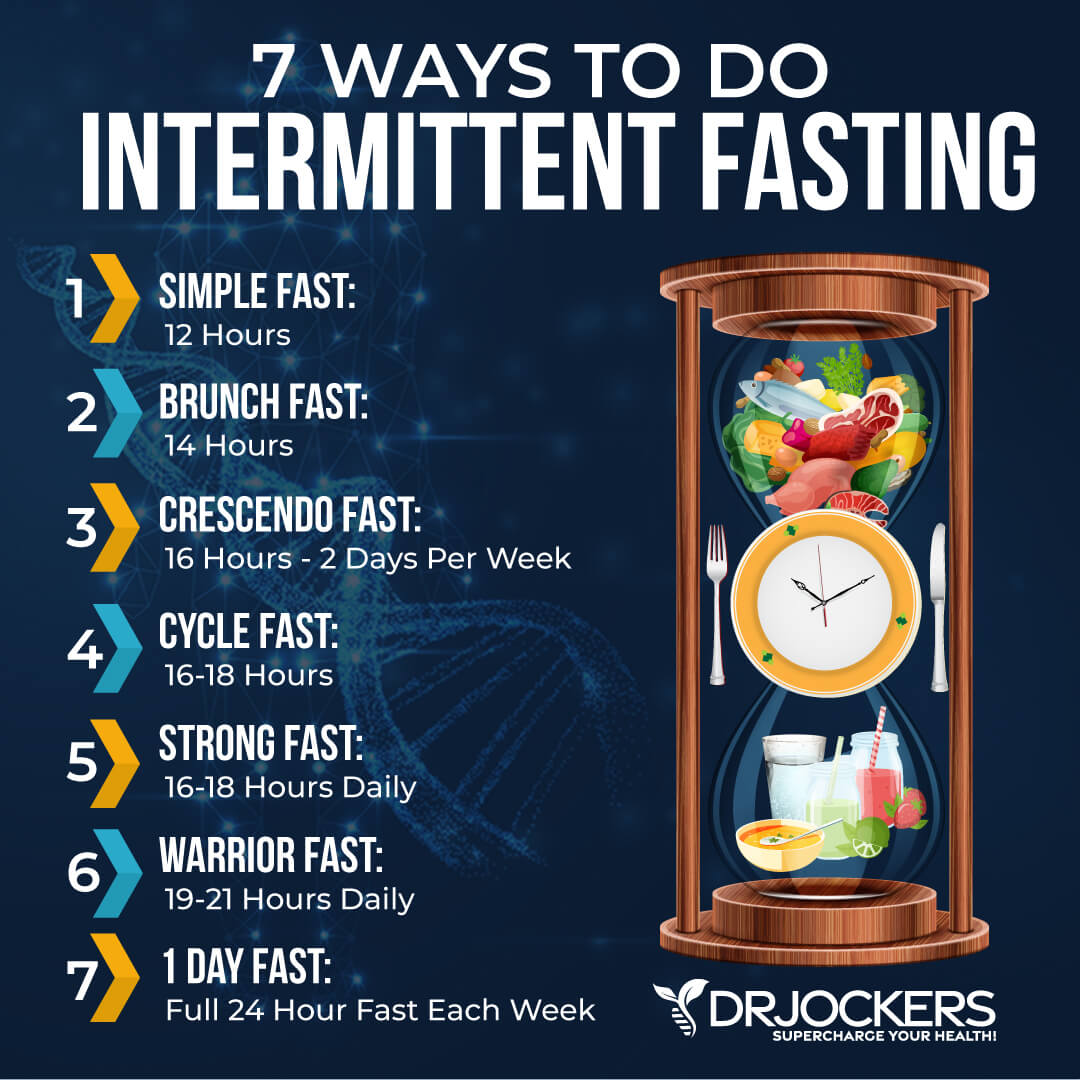
The Simple Fast
If you are new to intermittent fasting, I recommend that you start with the Simple Fast. It is the shortest duration of the intermittent fasting strategy. It is the easiest and best for beginners because you are only fasting for 12 hours, and you have a 12-hour eating window.
The fasting period includes overnight sleep making it simple to follow. To practice Simple Fasting, you may finish dinner at 6 pm, you can eat again at 6 am. Similarly, with a 7 pm dinner, you are ready for your first meal at 7 am.
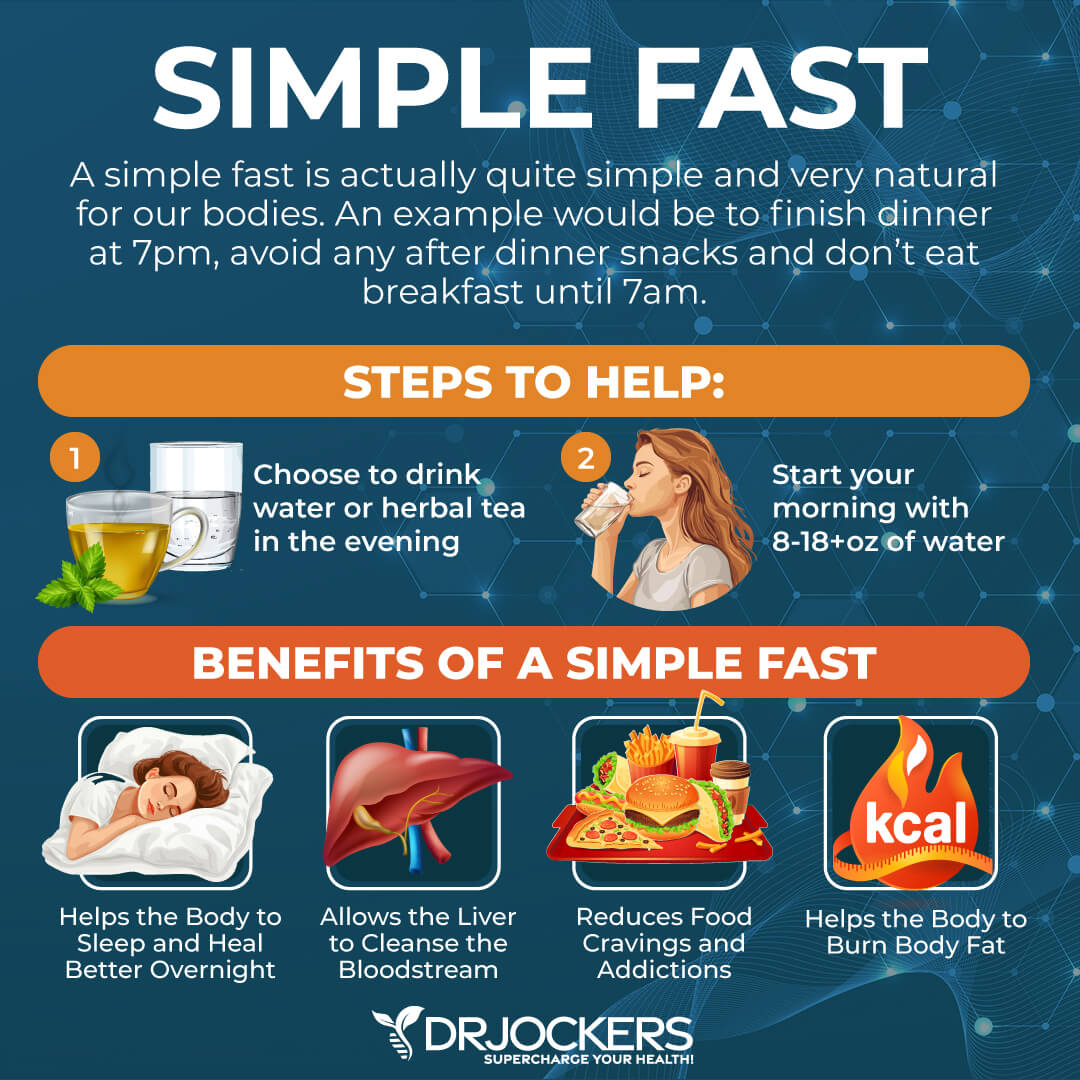
The Cycle Fast and Strong Fast
After a few weeks on a Simple Fast, you may move onto the Cycle Fast, then step up to the Strong Fast. The Cycle Fast has a 16-hour fasting window, however, it is only performed 3 times per week on non-consecutive days.
For example, if you finish dinner at 6 pm on Monday, you can eat again at 10 am on Tuesday. Then you proceed to eat normally until Wednesday evening when you will fast again for 16 hours until Thursday morning.
The Strong Fast is only a small step up from the Cycle Fast. It’s practiced daily and has a 16 to 18-hour fasting window, which means that with a 6 pm dinner, you can eat again between 10 am and noon the next day. The 16:8 Strong Fast is the one method in which most people find the highest level of health benefits.
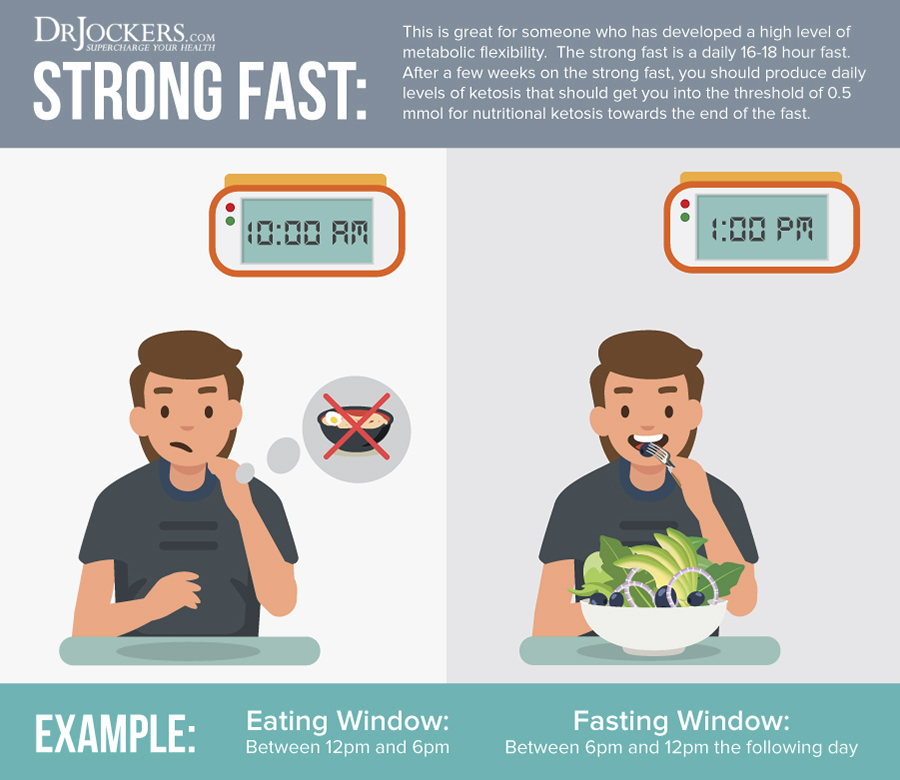
Warrior Fast and OMAD
If you’ve been practicing the Strong Fast for a long time, you may want to try the Warrior Fast with a 19 to 21-hour fasting window or the One Meal a Day Diet (OMAD) with 23 hours of fasting. I only recommend these two methods to those with extensive successful intermittent fasting experience.
Crescendo Fasting for Women
For women, I recommend Crescendo Fasting until you build up your fasting fitness level. I find this particularly effective for lean, active women who are still having their menstrual cycle and have a very busy and stressful lifestyle. It is the best strategy to maintain hormonal balance while enjoying the immune-supporting benefits of intermittent fasting.
To learn more about the best intermittent fasting strategies and their benefits, I recommend this article. Check out the image below to see how to properly implement crescendo fasting and how to graduate beyond it.
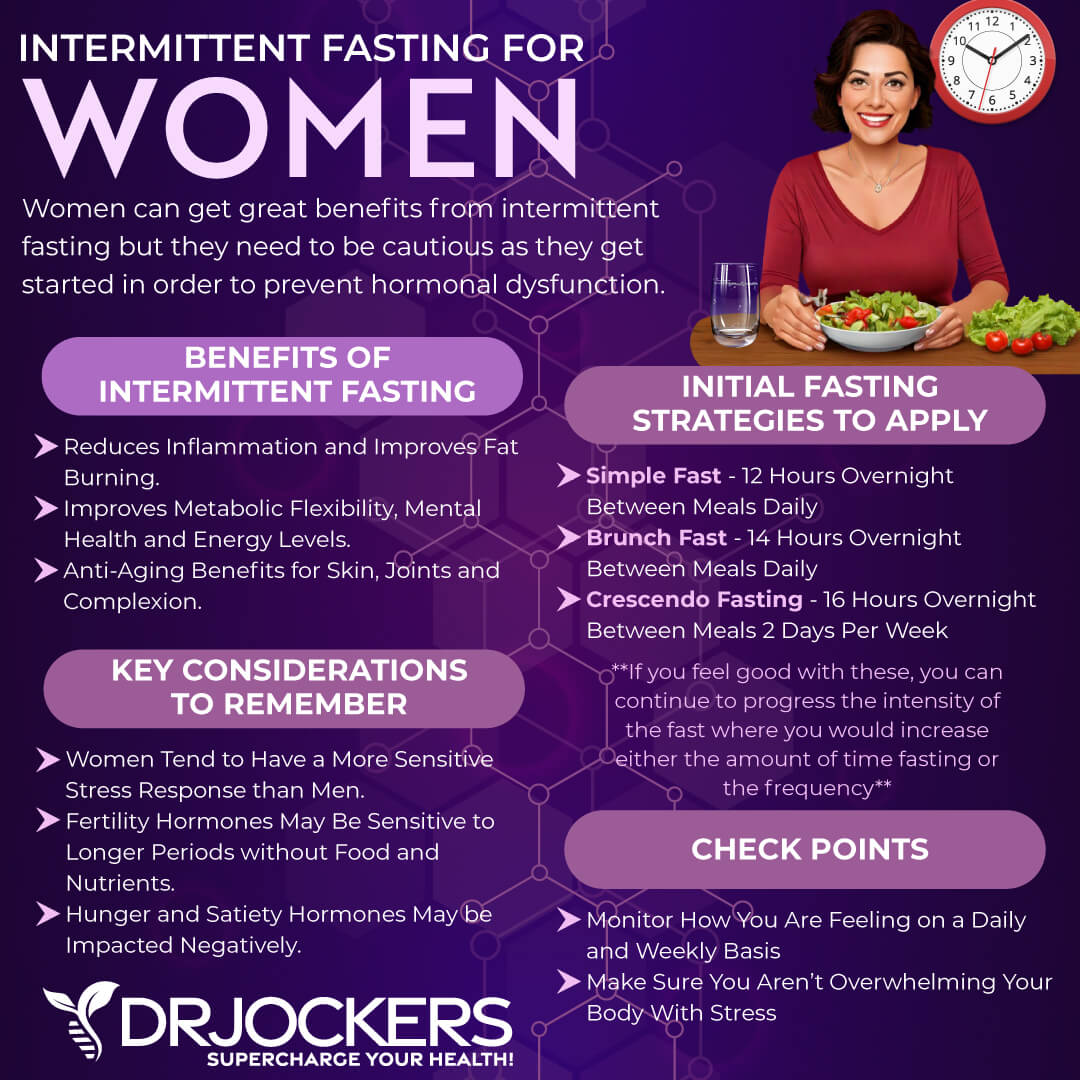
Try a 3-5 Day Partial Fasting Strategy
If you are looking to experience the benefits of fasting but are not ready to refrain from food for a day or several days, I highly recommend trying partial fasting for 3 to 5 days. It holds similar immune-supporting benefits as intermittent fasting and water fasting do, however, you won’t be completely deprived of calories.
There are a variety of partial fasting strategies you can try. All of them focus on high-quality nutrients while giving your digestion a break and your immune system some much-needed support. While partial fasting still limits your food choices and food intake, it allows you to consume certain specific nutrient-dense liquids, and in some cases, food, during your partial fast.
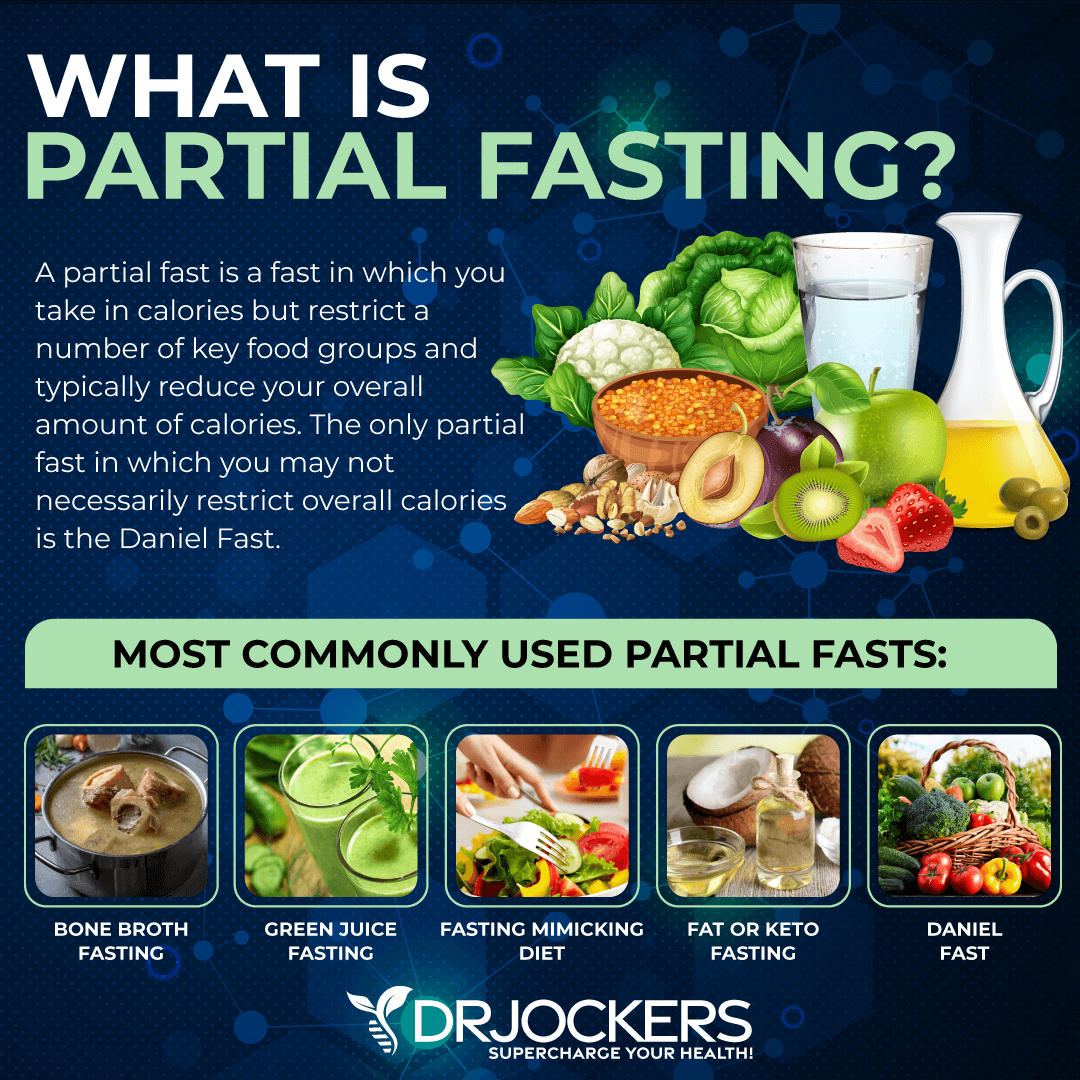
Bone Broth Fast
Bone broth fasting is one powerful partial fasting strategy. During this fast, you will be refraining from all food except bone broth, a nutrient-dense elixir made from simmering bones and connective tissue from animals.
Bone broth fasting provides plenty of minerals, electrolytes, and amino acids while keeping you in a calorie-restricted mode. Many people find it much easier as compared to a water-only fast.
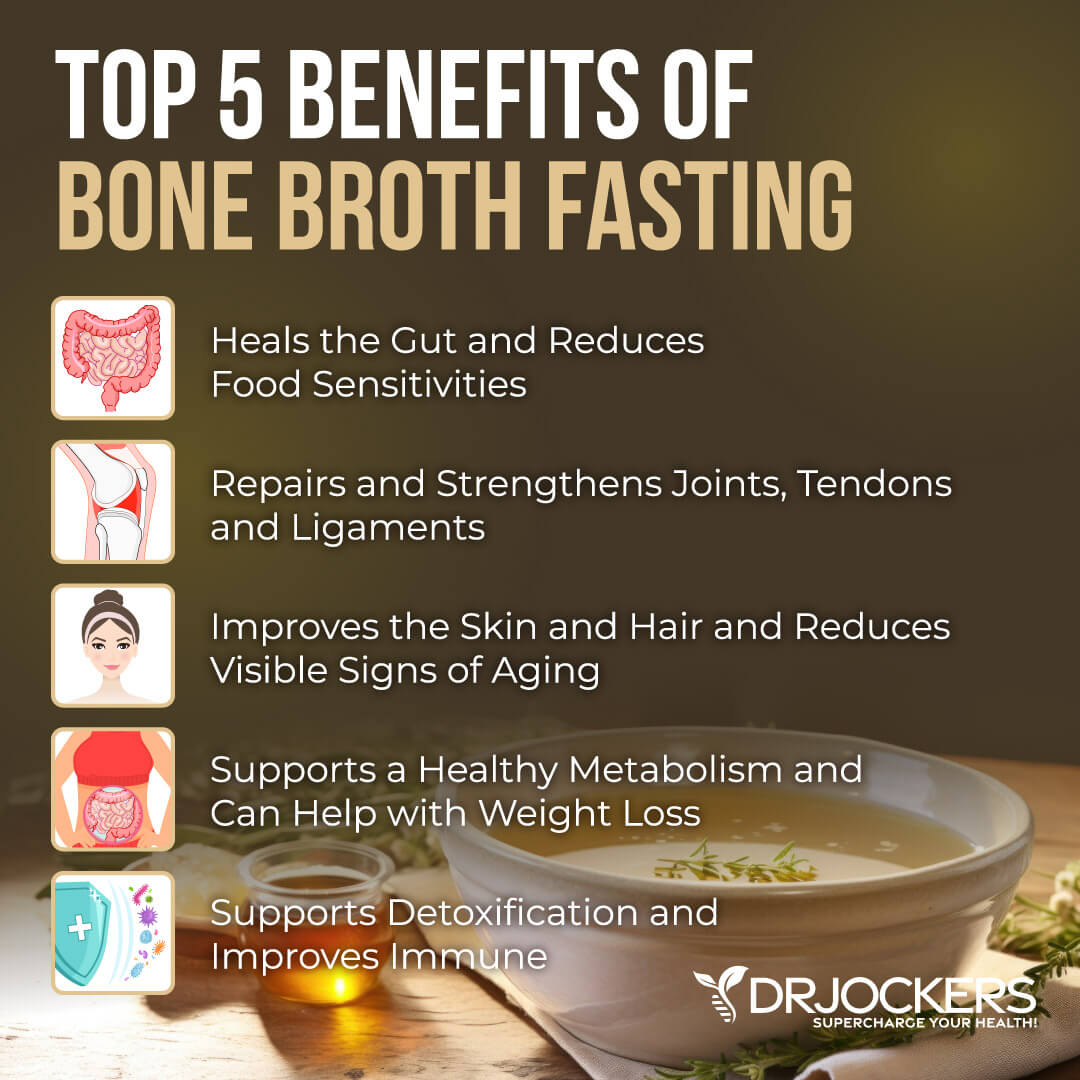
Green Juice Fast
Green juice fasts are also called green juice cleanse or green juice detox. During your green juice fast, you will be drinking green juices for breakfast, lunch, dinner, and snacks.
Green juices are high doses of minerals, vitamins, and live enzymes in their most bioavailable form that allow you to meet your micronutrients while boosting your immune system and giving your digestive system a break.
Fasting Mimicking Diet®
The Fasting Mimicking Diet®, or FMD® is a 5-day protocol you can try every 8 to 12 weeks. On the first day, limit your calories to 1,100 calories a day, and on days 2 to 5, restrict them to 800 calories only with 400 calories from complex carbs and 400 calories from healthy fats.
A company called Prolon has made a 5 day box you can purchase that has the food portions already made and easy to use. You can learn more about FMD here
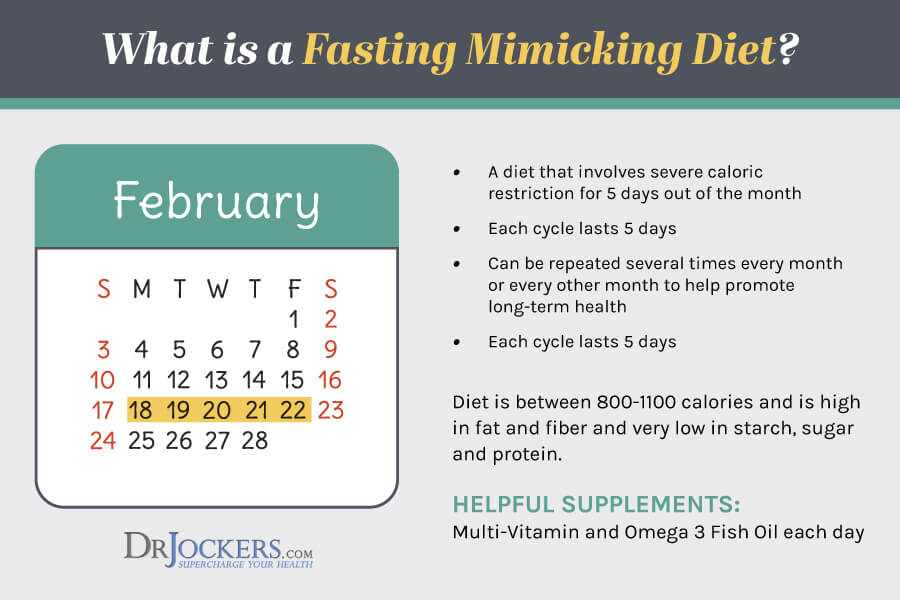
Fat or Keto Fast
Fat or Keto Fasting is designed to achieve quick weight loss. For 3 to 5 days, focus on a high-fat and low-calorie diet between 500 to 1000 calories per day.
Make sure that 90 percent or more of your calories come from high-quality, healthy fats, such as avocados, coconut oil, olive oil, grass-fed butter, and pasture-raised eggs.
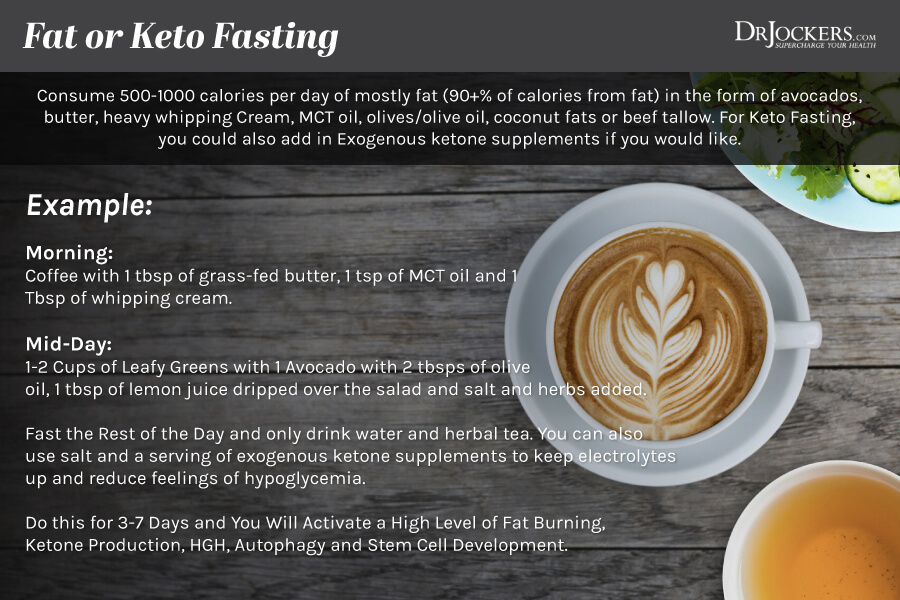
Daniel Fast
The Daniel Fast is a nutrient-dense, anti-inflammatory plan that is also the most spiritual strategy out there dating back to Biblical times. The Daniel Fast is a 10- to 21-day plan that focuses on plant-based foods, including vegetables, low-glycemic index fruits, plant fats, nuts, seeds, spices, and herbs.
While the original plan is a bit longer, you may also benefit from practicing it for 3 to 5 days as a steppingstone to a healthier diet and more advanced fasting methods. To learn more about partial fasting and its benefits, I recommend reading this article.
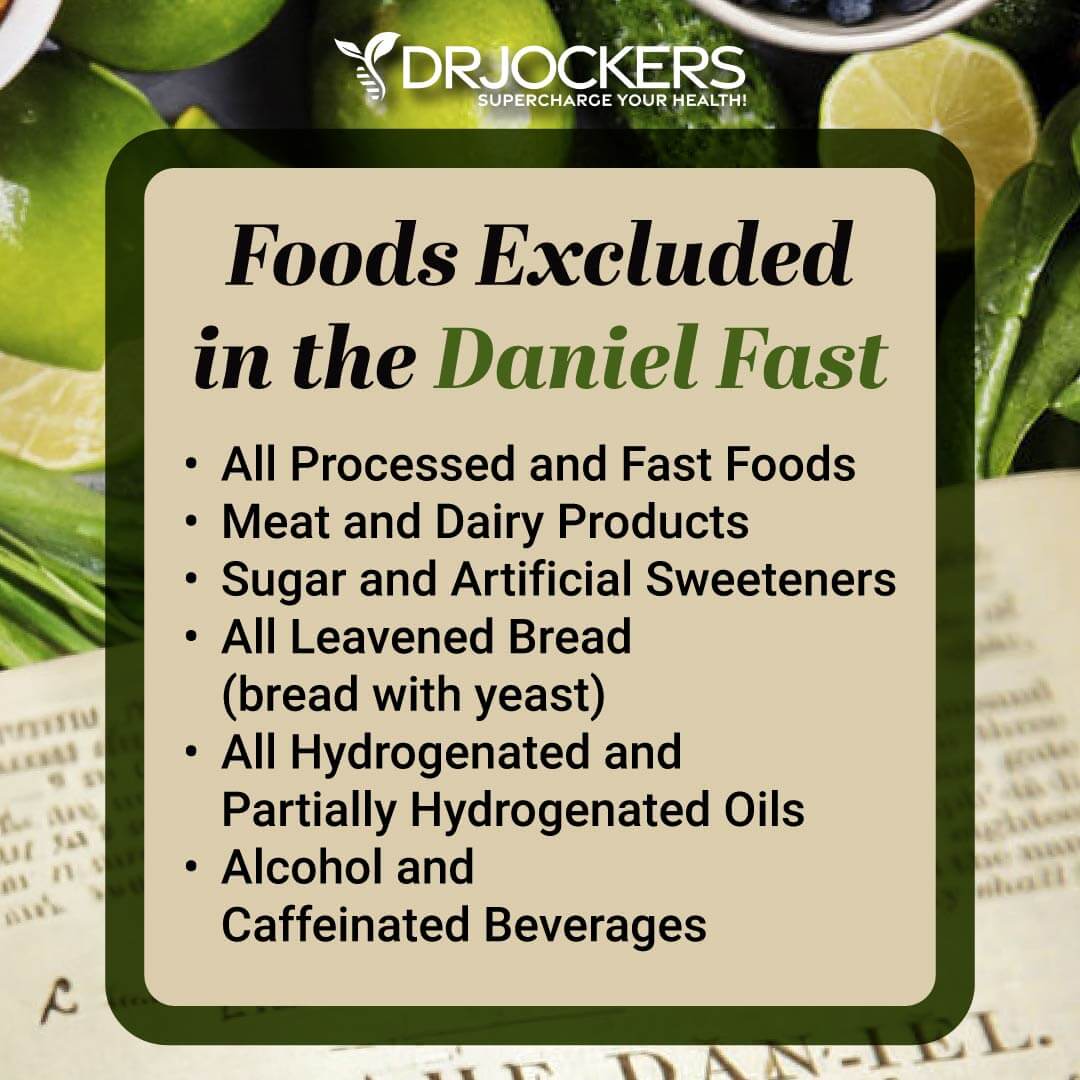
Try a 3-5 Day Water Fast
As the name indicates, water fasting is a fasting strategy where you are only drinking water and not consuming any food or other liquid during your fast. Water fasting has been practiced throughout history for its health and spiritual benefits. While it offers incredible immune-boosting and other health benefits, I only recommend it if you are experienced in more advanced intermittent fasting strategies.
It is critical that you prepare your body well for a water fast. I recommend that you follow a nutrient-dense ketogenic diet and intermittent fasting for at least 2 to 3 weeks before beginning your water fast.
This helps your body to enter into a fat-burning mode and experience ketosis, so water fasting will be easier on your body. I also recommend that you try a weekly 20 to 24 hour fast for at least 1 to 2 weeks before your water fast. This will prepare your body for going without food for 3 to 5 days.
To learn more about water fasting, its benefits, and my top strategies to prepare properly for it, I recommend this article.

How Often Should You Fast?
You may be wondering how often you should be fasting to achieve your health goals. It depends on the type of fasting, your body type, and your personal health goals.
I recommend that you practice intermittent fasting daily. If you are a thin or lean person, I recommend that you try a partial fast or water fast every 8 to 12 weeks for 3 to 5 days. If you are at normal weight, I recommend it every 6 to 8 weeks for 4 to 7 days.
If you are overweight, you may try it every month for 5 days or longer. However, fasting is very personal. I recommend that you listen to your body closely. You may also benefit from talking to a health professional who understands your health history and health goals and who is also well-versed in fasting.
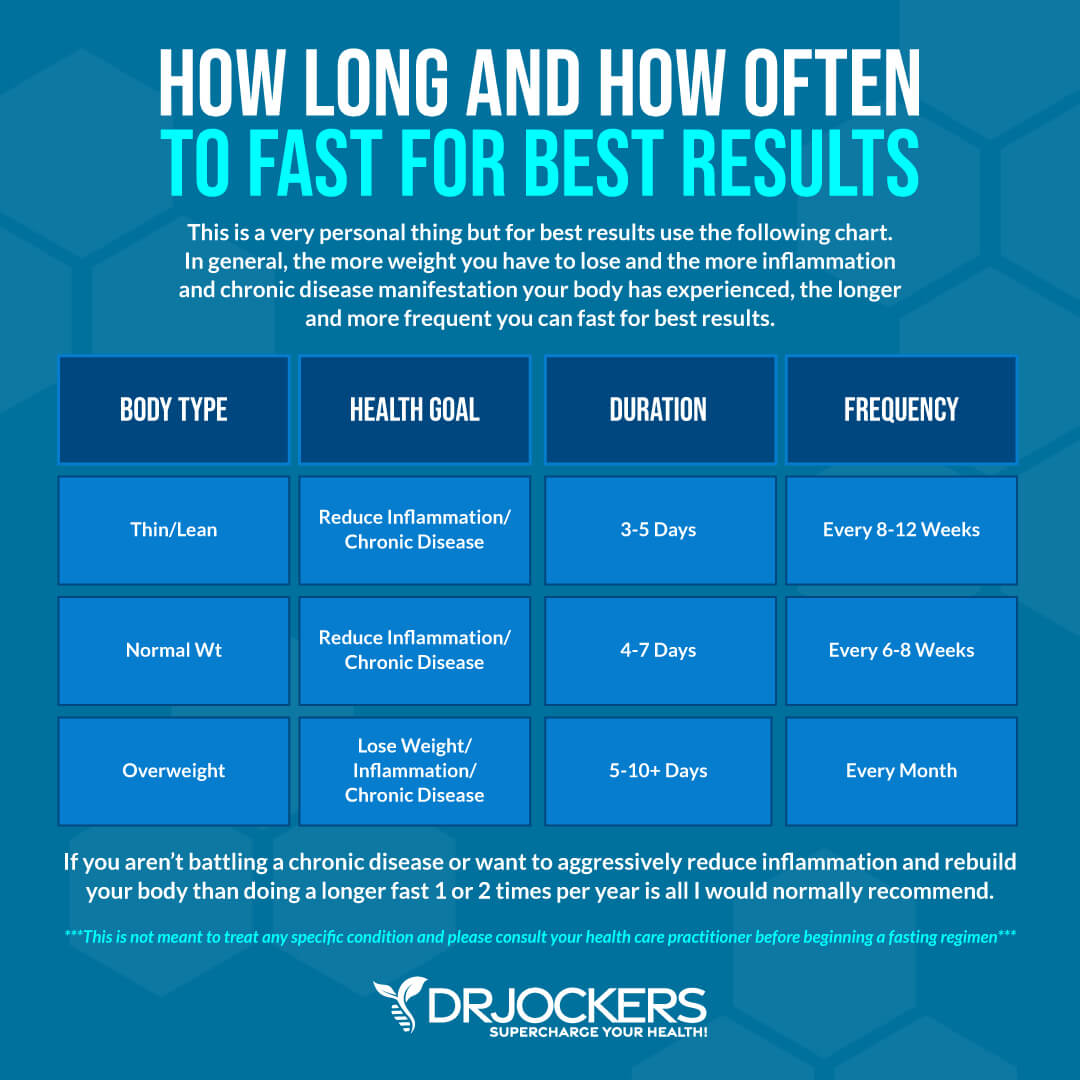
Final Thoughts on Autoimmune Diseases
Autoimmune diseases happen when your immune system turns against and mistakenly attacks your body. They affect 23.5 million Americans and cause various uncomfortable symptoms and further health problems.
The good news is that by practicing fasting you can improve your autoimmune condition. Follow my tips and start fasting today to support your immune system and regain your health and happiness.
Metabolic Autophagy & Cellular Healing Masterclass
Autophagy is the body’s innate mechanism for deep cellular healing and repair, and it helps us reduce the effects of aging, inflammation, and cellular damage.
The Nobel Prize in 2016 was awarded to the Japanese researcher Yoshinori Ohsumi for his breakthrough work in helping us understand the process of autophagy and how it works. If you are struggling with your health or desire to optimize your health, activating the appropriate amount of autophagy is a critical component.
This masterclass will give you in-depth video training along with image-rich, research-based guides to help you understand the tools and strategies to unlock your body’s dormant healing potential. You will also learn my signature 6-week Metabolic Reset Cycle that will show you how to utilize advanced nutrition strategies for deep cellular healing!
Check out the masterclass here where you will learn my best action steps for optimal healing!
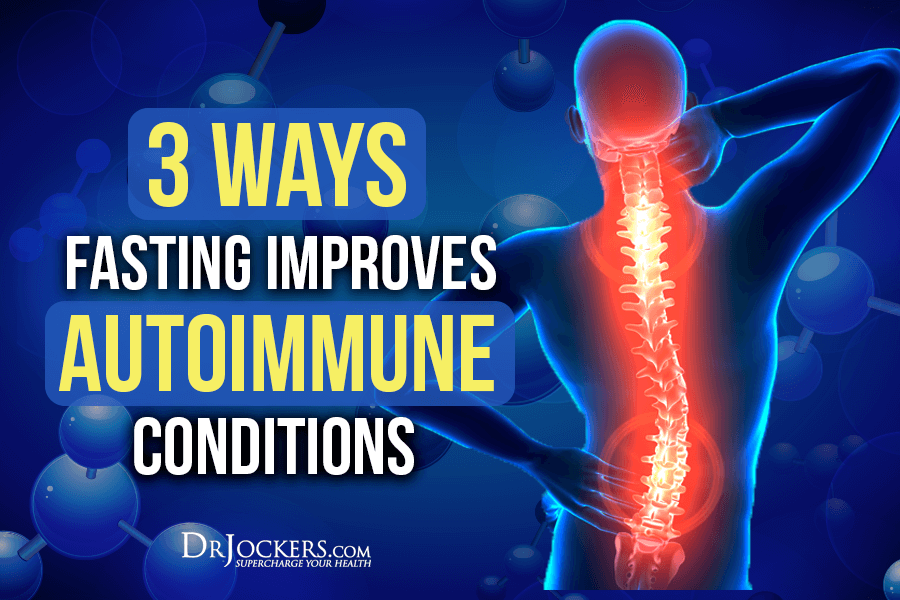
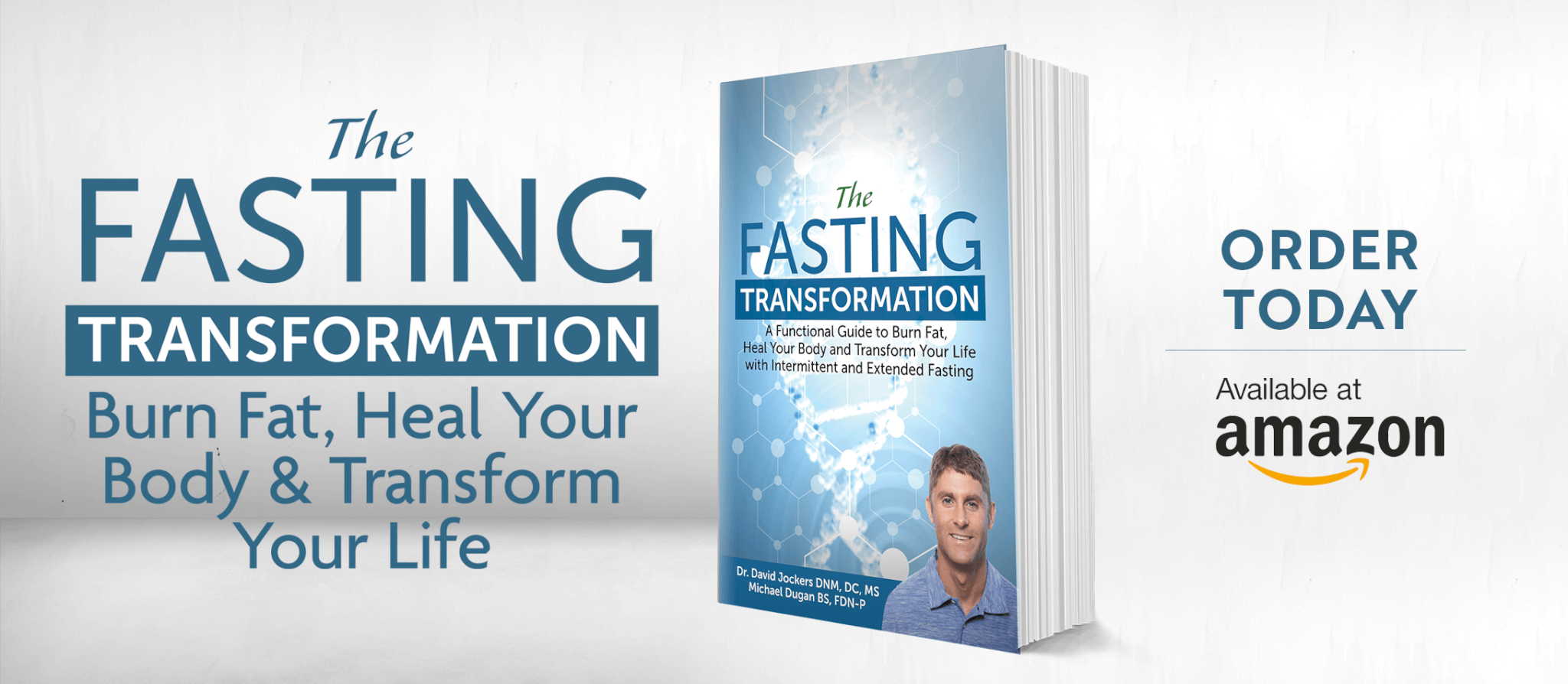
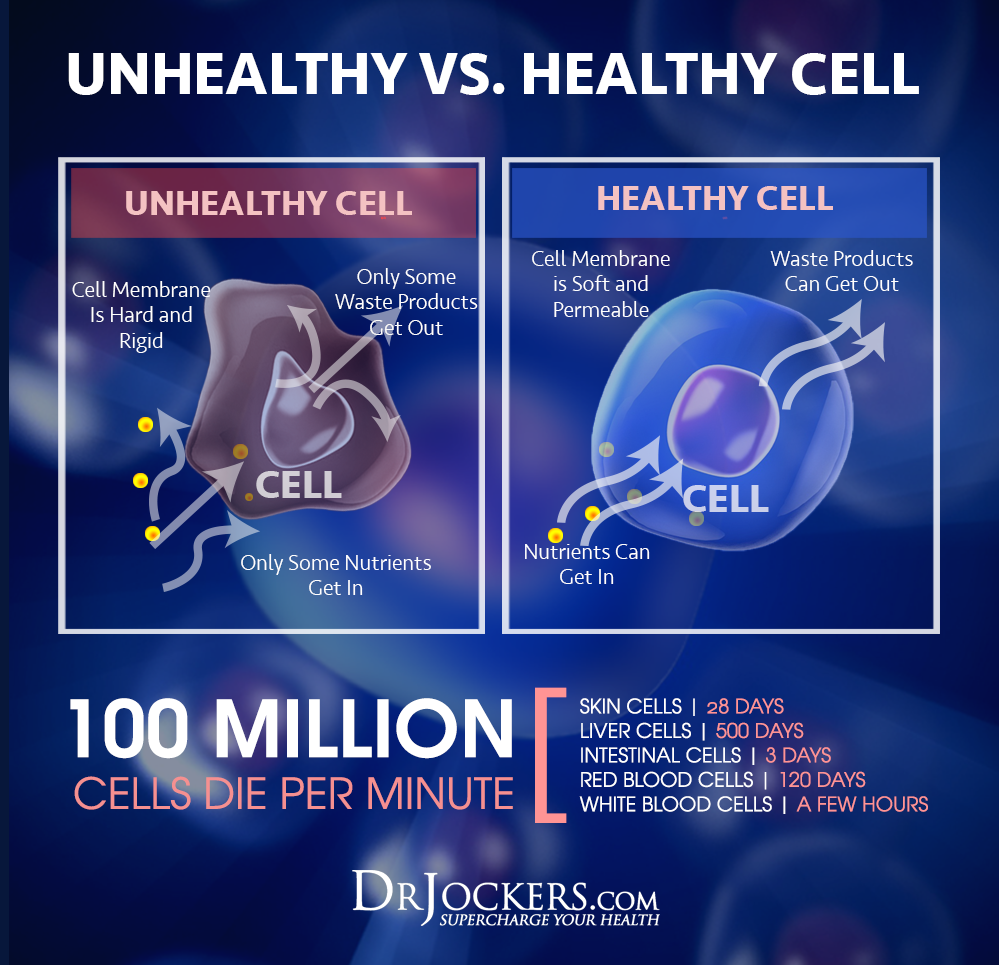
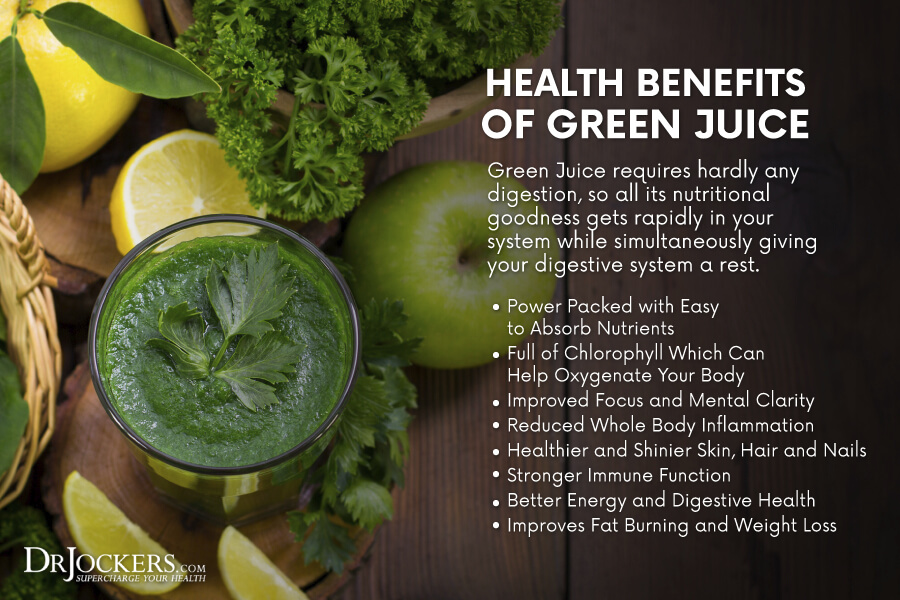
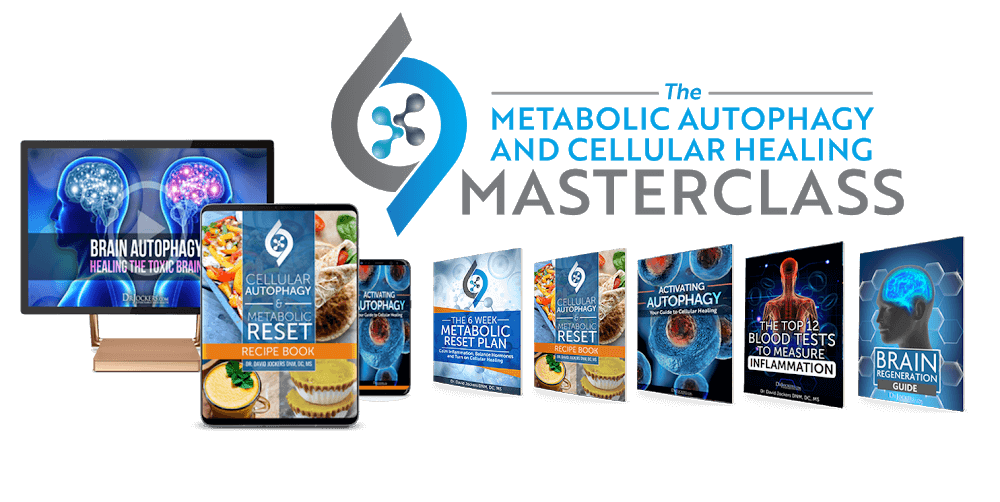
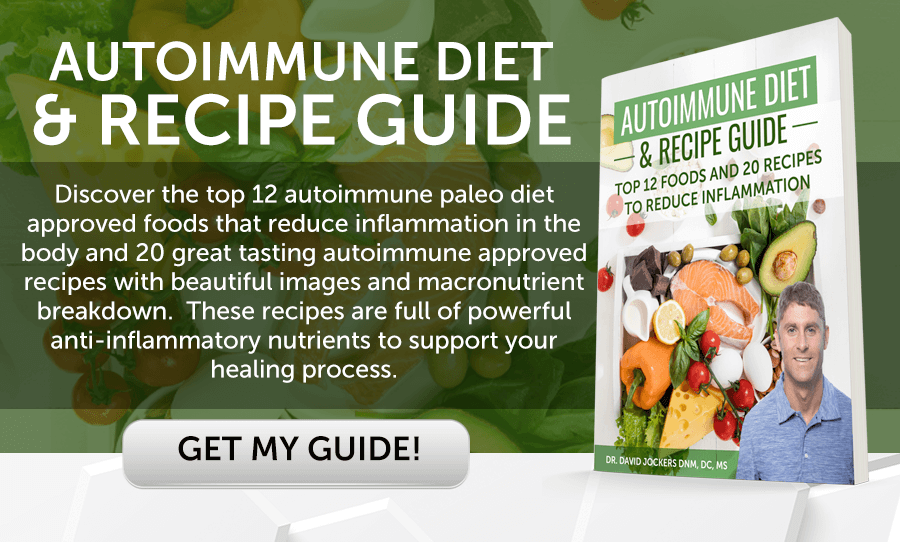


Wow, what an amazing article! So packed with tremendously good information! I have done intermittent fasting before and up to covid arriving here in the U.S. I felt better but my energy lagged in the evening doing so. I will go back to this and try again since I have gained 15 pounds this year and gained 10 last year. It’s time to reboot the body and help it out. Thank you for putting this together. I skimmed over it and will really study it this weekend. I also may take you on with the deeper help.
Yes fasting is extremely helpful! Blessings to you!
Do you do private consultations?
Yes we do offer long-distance coaching via private virtual consultations. You can find out the details here: https://drjockers.lpages.co/long-distance-coaching-dr-jockers/
I have been doing the 24 hour fasting weekly. Can you take you supplements while fasting? I have been diagnosed with vitaligo and am taking Chinese herbs as part of my healing protocol. and need to know whether to pass on them on not while fasting. Thank you!
Hello Sharon, yes you can take supplements that do not need to be taken with food while fasting.
Leaky gut due to gluten may cause allergies at any age and a person may eventually be allergic to all they eat.